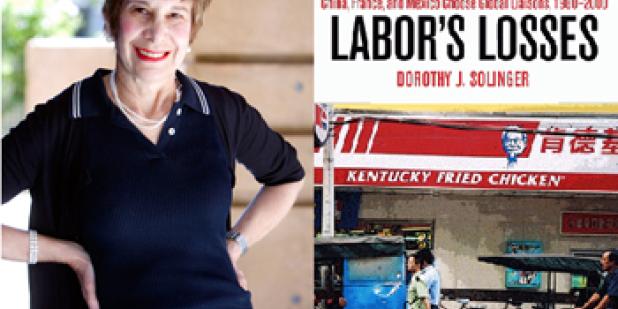Happy Lunar New Year from the USC US-China Institute!
China's Urban Poorest and their Program: Anti-Emblem of Municipal Modernization
USCI presents a talk with UC Irvine's Dorothy Solinger.

The poorest citizens of China's cities are handled by a program entitled the Minimum Livelihood Guarantee, colloquially known in Chinese as the dibao. Installed in 1999, at a time when large-scale state-mandated factory layoffs made the leadership leery of potential unrest, its subtext intention appears by now to be to keep the indigent out of sight.
Dorothy Solinger's field of specialization is Chinese politics with a concentration on political economy. In particular, she has focused on the political decisionmaking and social and political reactions to policy about economic matters. She has written on regional policy and regionalism in China; the treatment of minority nationalites; the politics of socialist commerce, the treatment of the private sector under socialism in China, the politics of inflation control, and the politics of economic reform. More broadly, she has also written on industrial policy in China, with comparative reference to similar policy in Japan and France. Her last project concerned the management of the transient peasant population in China. Her current project concerns unemployment and globalization in China, France, and Mexico; relatedly, she has worked in recent years on urban reforms, laid-off workers, and welfare reform. She has also published on transitions from one-party rule in Taiwan, Korea and Mexico and has written several pieces on projections about the democratization of China.
Professor Solinger teaches courses on Chinese politics, introduction to comparative politics, East Asian politics, regime change in East Asia, and theories of the state.
Featured Articles
We note the passing of many prominent individuals who played some role in U.S.-China affairs, whether in politics, economics or in helping people in one place understand the other.
Events
Ying Zhu looks at new developments for Chinese and global streaming services.
David Zweig examines China's talent recruitment efforts, particularly towards those scientists and engineers who left China for further study. U.S. universities, labs and companies have long brought in talent from China. Are such people still welcome?






